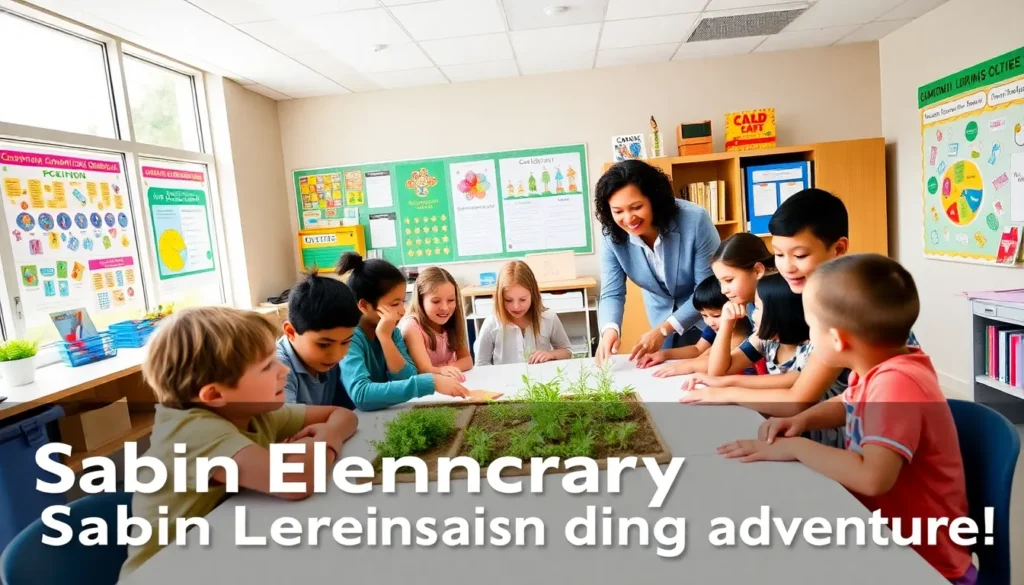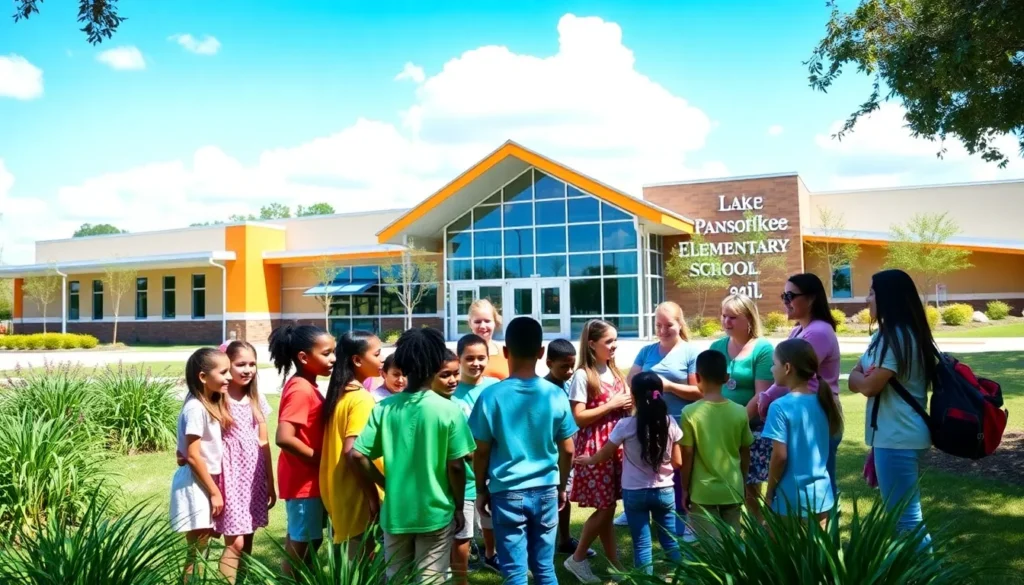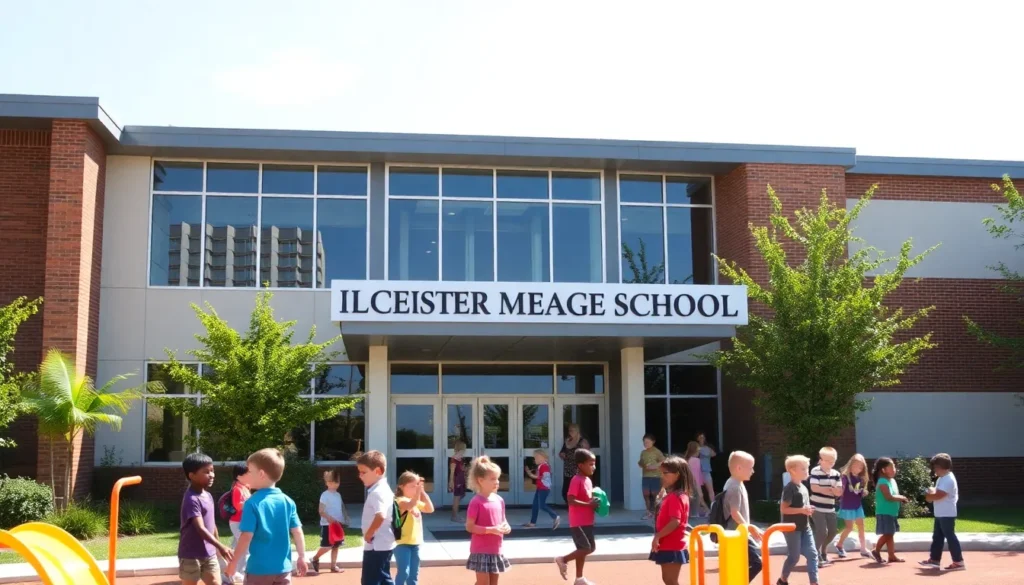Navigating the waters of separation can feel like trying to steer a ship through a storm without a map. Parents separated? Oh boy, that’s a tough one. Yet, it’s not the end of the world. In reality, many families find ways to adapt and thrive post-separation. Whether exploring why couples drift apart or uncovering strategies to support children through change, understanding these dynamics is essential. Parents aren’t alone in this journey: resources and support are plentiful if they know where to look. So, grab your life jacket, and let’s jump into this complex yet fascinating topic.
Table of Contents
ToggleUnderstanding the Reasons for Separation

Divorce or separation often comes with a whirlwind of emotions. But what causes this significant decision? There are diverse reasons, each uniquely impactful:
- Communication Breakdown: One of the top reasons couples separate. When partners can’t communicate effectively, misunderstandings snowball, leading to resentment.
- Financial Strain: Money troubles wreak havoc on relationships. Struggling to keep afloat can test even the strongest bonds.
- Infidelity: Betrayal can shatter trust. Many couples find it challenging to recover from unfaithfulness.
- Different Life Goals: Sometimes, people simply grow apart. What once seemed like a shared vision can turn into divergent paths.
- Family Dynamics: Bringing children or relatives into the mix can change the relationship’s landscape. External pressures often complicate matters, leading to separation.
Recognizing these elements can offer insight into the separation situation. Understanding leads to healing, process comprehension, and effective coping.
Impact on Children
Children often bear the brunt of their parents’ decision to separate. They might feel confusion, sadness, or even relief. Here’s how separation can influence kids:
- Emotional Turmoil: Kids are sensitive to parental stress. They may feel an array of emotions from anger and anxiety to guilt for being the cause.
- Behavioral Changes: Some children might act out, while others become withdrawn. Not understanding what’s happening often creates confusion.
- Academic Struggles: Changes at home might affect focus in school, leading to declining grades. The emotional impact can be significant.
- Difficulties in Relationships: Post-separation, children might find it challenging to trust others. They could feel insecure about attachments, which affects future relationships.
Understanding how children react is crucial for parents aiming to support and reassure their kids during this challenging time. Sensitive communication can ease some of these feelings.
Coping Strategies for Parents
Parents themselves need to navigate tricky waters during and after a separation. Finding ways to cope can make a world of difference:
- Prioritize Self-Care: Stress levels soar during separation. Parents should prioritize physical and mental health. Whether taking a long walk or indulging in a good book, self-care is vital.
- Seek Professional Help: Talking to a counselor or therapist can provide insights and coping mechanisms tailored to individual circumstances.
- Establish Open Communication: Ensuring they communicate about feelings and fears helps parents connect with their children and provides reassurance.
- Create a Routine: Children thrive on stability. Having a consistent routine can help parents minimize uncertainty in their lives.
In essence, managing personal emotional health can significantly improve parenting quality during separation.
Support Systems for Children
Children need robust support systems during family transitions. Families should pool resources to create nurturing environments:
- Extended Family: Grandparents, aunts, and uncles can offer shelter and understanding. They provide alternative perspectives, which can ease the burden on parents.
- Friends: Having a network allows kids to express themselves freely and experience normalcy. Encourage playdates and open discussions about feelings.
- School Resources: Schools often have counselors or psychologists who can help children make sense of their emotions. Don’t hesitate to reach out to these professionals.
- Support Groups: Sometimes, it helps to connect with others going through similar experiences. Many communities offer support groups aimed specifically at children from separated families.
Providing children with diverse support can help them navigate this journey, reinforcing that they are not alone.
Legal Considerations and Options
While emotions run high, legal considerations must also be addressed. Parents should be informed:
- Custody Arrangements: Who gets to spend time with the children is often a contentious issue. Knowing custody options, joint, sole, or split, can help parents make informed decisions.
- Child Support: Financial responsibility after separation is a crucial factor. Understanding legal obligations can prevent future disputes.
- Mediation: Consider mediation for resolving conflicts amicably. It often offers a less adversarial approach compared to court proceedings.
- Consult Legal Counsel: It’s vital for parents to consult with a lawyer experienced in family law to ensure rights are protected throughout the process.
Navigating the legal landscape can be daunting. But, knowledge empowers parents to approach these challenges with more confidence.
Maintaining Healthy Relationships Post-Separation
After a separation, maintaining healthy relationships with children is often the top priority. Parents should consider these key strategies:
- Stay Civil: Arguments can adversely affect children. Maintaining respectful communication with the ex-partner is essential.
- Unified Front: Agreeing on parenting principles helps create consistency for children, reducing confusion. Presenting a unified front can ease transitions for them.
- Be Present: Quality time matters. Dedicate specific days to spend time with kids, engaging in activities they love, reinforcing those bonds.
- Encourage Open Dialogue: Kids should feel safe discussing their feelings about the separation. Encourage them to express their thoughts and emotions to foster healing.
Building healthy post-separation family relationships is crucial for everyone. These strategies pave the way to a peaceful co-parenting journey.









